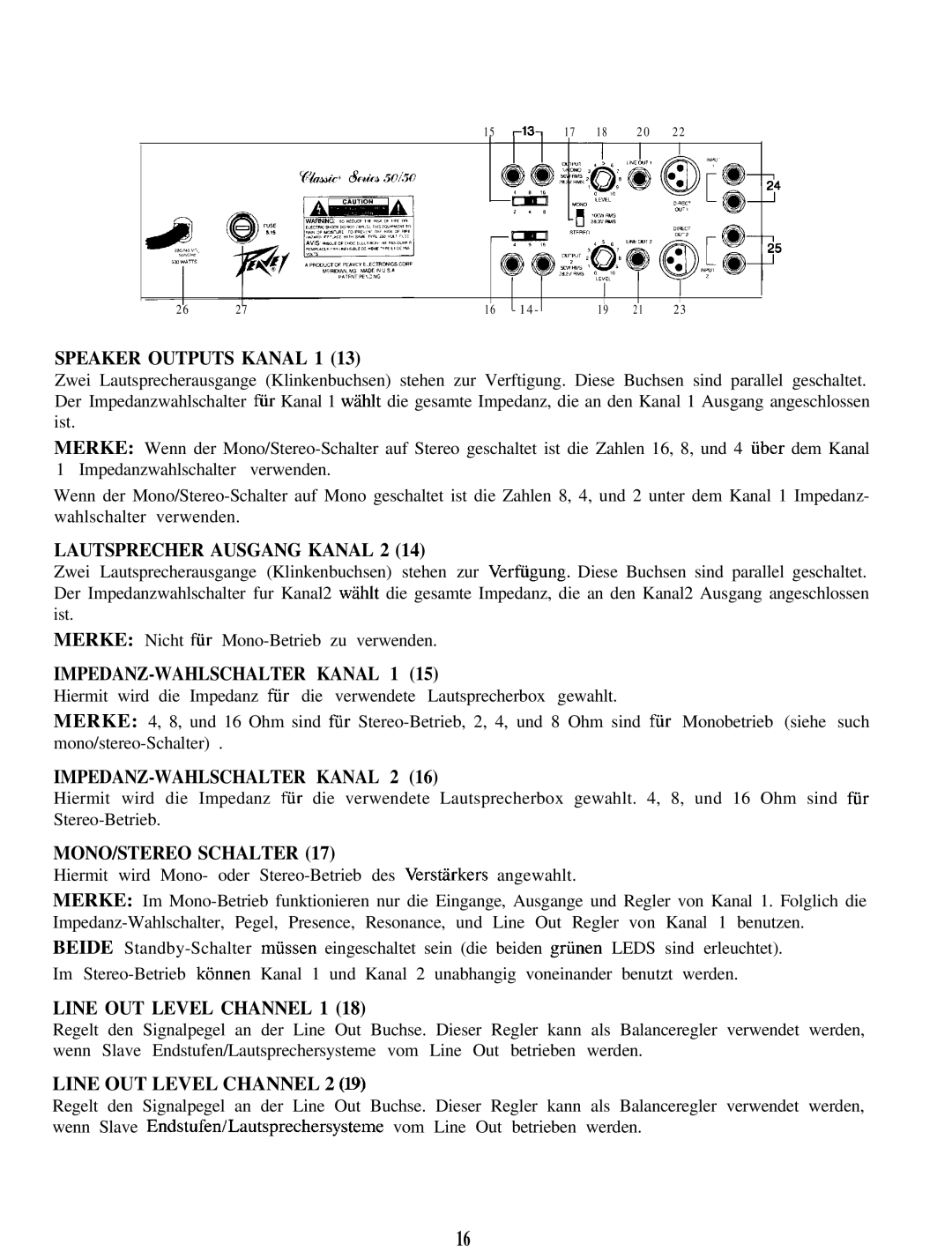50/50 specifications
The Peavey 50/50 power amplifier is a renowned piece of audio equipment highly regarded among musicians and sound engineers for its robust performance and reliable operation in various settings, from live sound to studio applications. Known for its clean sound and powerful output, the 50/50 has become a staple in professional audio setups.One of the main features of the Peavey 50/50 is its unique power architecture. The amplifier delivers a significant output of 50 watts per channel into an 8-ohm load, boasting a bridge mode that increases the power output to 100 watts for a single channel. This flexibility allows users to adapt the amplifier to different environments, whether it's for intimate gigs or larger venues. The ability to drive demanding loads with ease makes the 50/50 a favorite among musicians who require reliability under pressure.
Another standout technology in the Peavey 50/50 is its patented Peavey "DDT" speaker protection system. This system effectively prevents speaker distortion and damage by monitoring output levels in real-time. By intelligently limiting signal peaks, the DDT system ensures that users can push their audio system without fear of damaging components, thereby preserving sound quality throughout performances.
The 50/50 also incorporates a high-frequency response that ranges from 20 Hz to 20 kHz, providing a full spectrum of sound reproduction. Its low noise floor enhances clarity, making it suitable for both vocal and instrumental applications. The overall sonic character is defined by a dynamic range that retains detail at both high and low volumes, allowing for expressive performances.
In terms of design, the amplifier is housed in a rugged metal chassis, built to withstand the rigors of touring and live performance. With top-mounted controls and an easy-to-read panel, users can quickly adjust levels and settings, ensuring seamless operation during gigs. Moreover, the rear panel provides various input and output options, including XLR and 1/4" connectors, making it versatile for various setups.
Overall, the Peavey 50/50 power amplifier embodies durability, versatility, and excellent sound quality, making it a valuable asset for both professional and aspiring musicians alike. Its combination of performance features, innovative technologies, and rugged construction solidifies its position as a trusted companion for audio professionals everywhere. Whether used in small clubs or large concert venues, the Peavey 50/50 consistently delivers powerful and reliable audio performance, contributing to memorable musical experiences.

